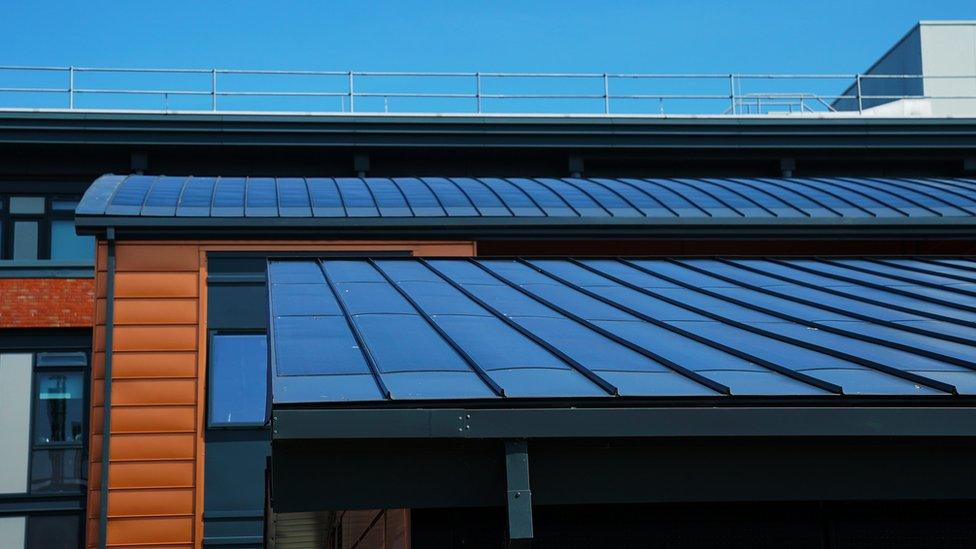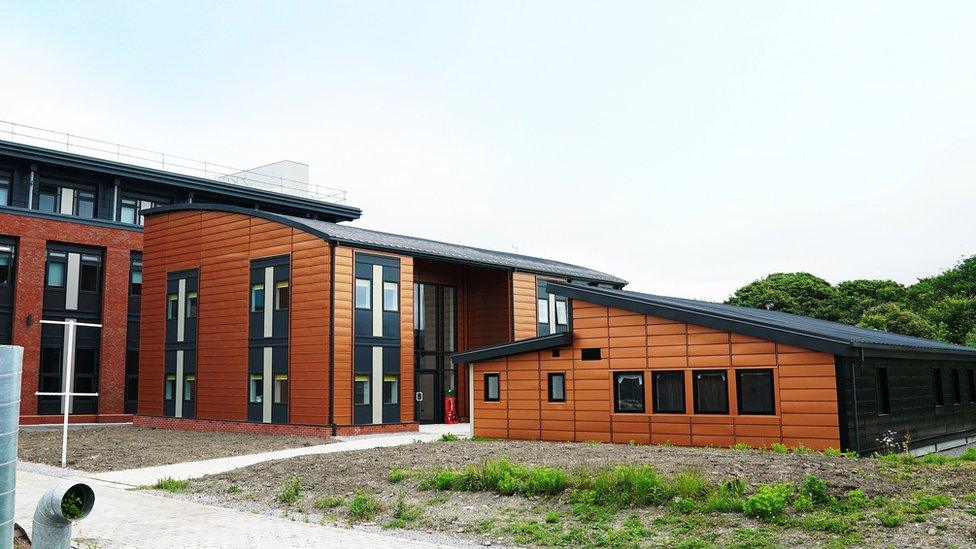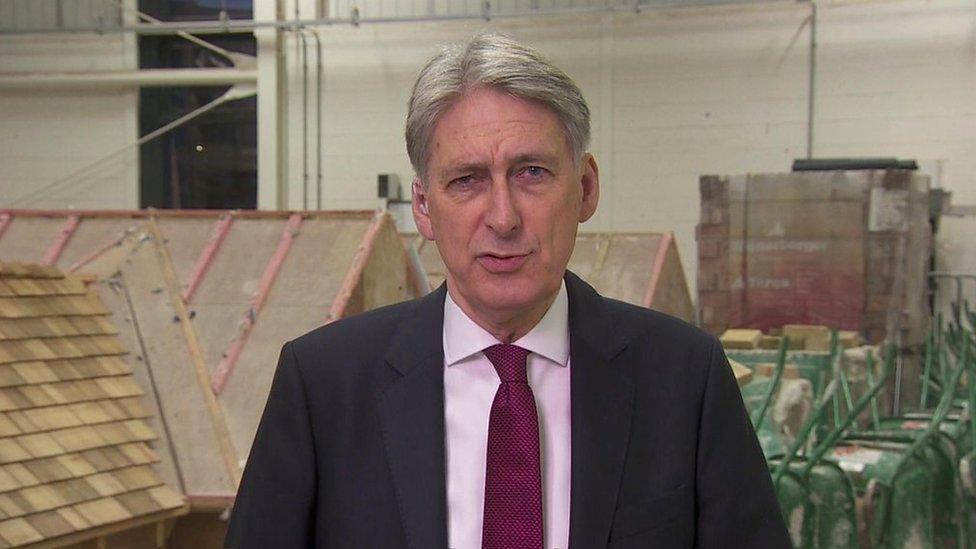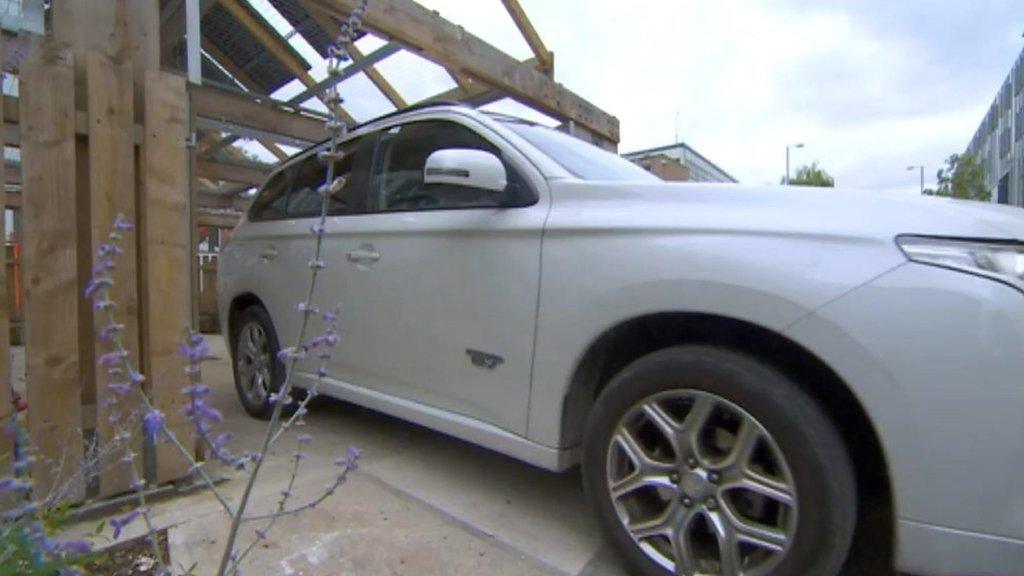£36m for Swansea research on power-generating buildings
- Published
- comments

Conventional walls and roofs could be replaced by the technology
Swansea University will receive £36m to develop building materials which generate power, Chancellor Philip Hammond has announced.
The technology, using heat and light to make electricity, could replace conventional walls, roofs and windows.
The power could be used in homes, workplaces, schools and hospitals, with the energy stored and released by "smart energy systems".
Mr Hammond said the aim was to cut energy bills and carbon emissions.
Excess power could be sold back to the National Grid.

How does the technology work?

Photovoltaic panels are integrated into the roof of an 'active' building
The concept uses a combination of solar cells, battery storage and a steel frame which draws solar-heated air through tiny perforations for heating and warm water.
Steel roofs have photovoltaic cells which are integrated, allowing them to operate in areas with lower levels of sunlight.
Electricity is stored in batteries which can be shared with the community when needed.
Swansea's Specific research centre has already opened an "active" classroom and an office showcasing the technology. In its first year, the classroom generated more than 1.5 times the energy it consumed.
Its office has a curved photovoltaic roof and a wall-mounted solar system which can generate heat and electricity, as well as a 2,000 litre water-based solar heat store which captures energy to proving heating for the following day.
A smart controller looks at building occupancy and weather forecasts to optimise charging the heat store.

The active office and classroom share energy with each other

Mr Hammond said: "Swansea University and the innovative companies working with it are world-leaders in clean energy.
"The UK government is backing the industries of the future that will deliver jobs and opportunities across Wales.
"This £36m new funding will support exciting green technology that could cut energy bills, reduce carbon emissions and create better homes and workspaces."

Philip Hammond says UK ministers are backing future industries
Welsh Secretary Alun Cairns added: "Today's funding announcement, on top of the £68m commitment to Swansea University since 2010, will ensure that Wales and one of its most forward-thinking universities will play a key role in keeping the UK at the vanguard of innovation for years to come."
UK ministers have committed to at least halving the energy used in new buildings by 2030.
The funding will go to Swansea University's Specific research institute, external.
Another £6.5m is coming from the Welsh Government, including £5m from its Innovative Housing Programme budget.
Housing and Regeneration Minister Rebecca Evans said: "We are looking for projects that can help meet our affordable housing needs, projects that can tackle fuel poverty and improve the lives of people who live in them."
- Published14 September 2018

- Published7 September 2018

- Published29 November 2017
